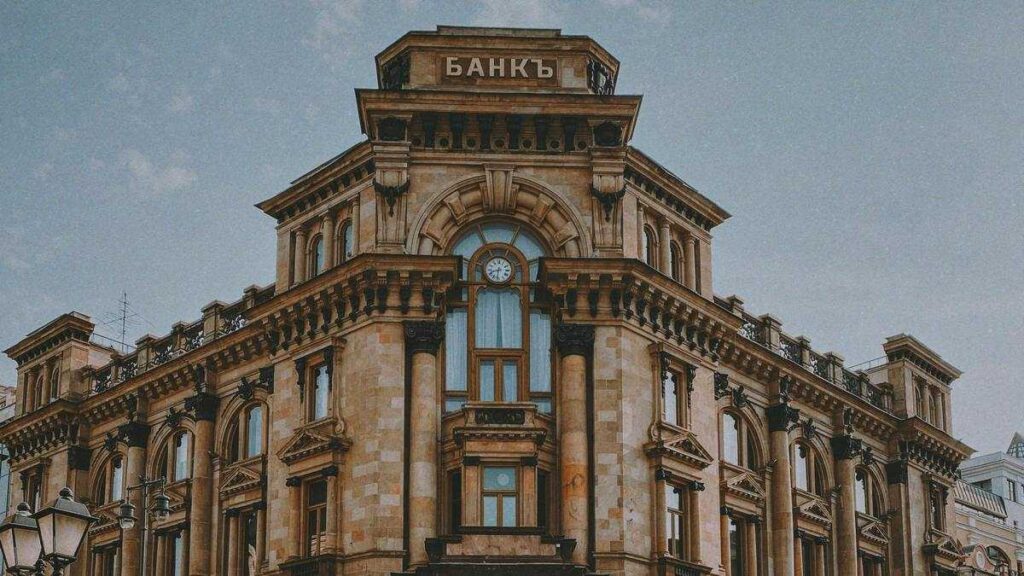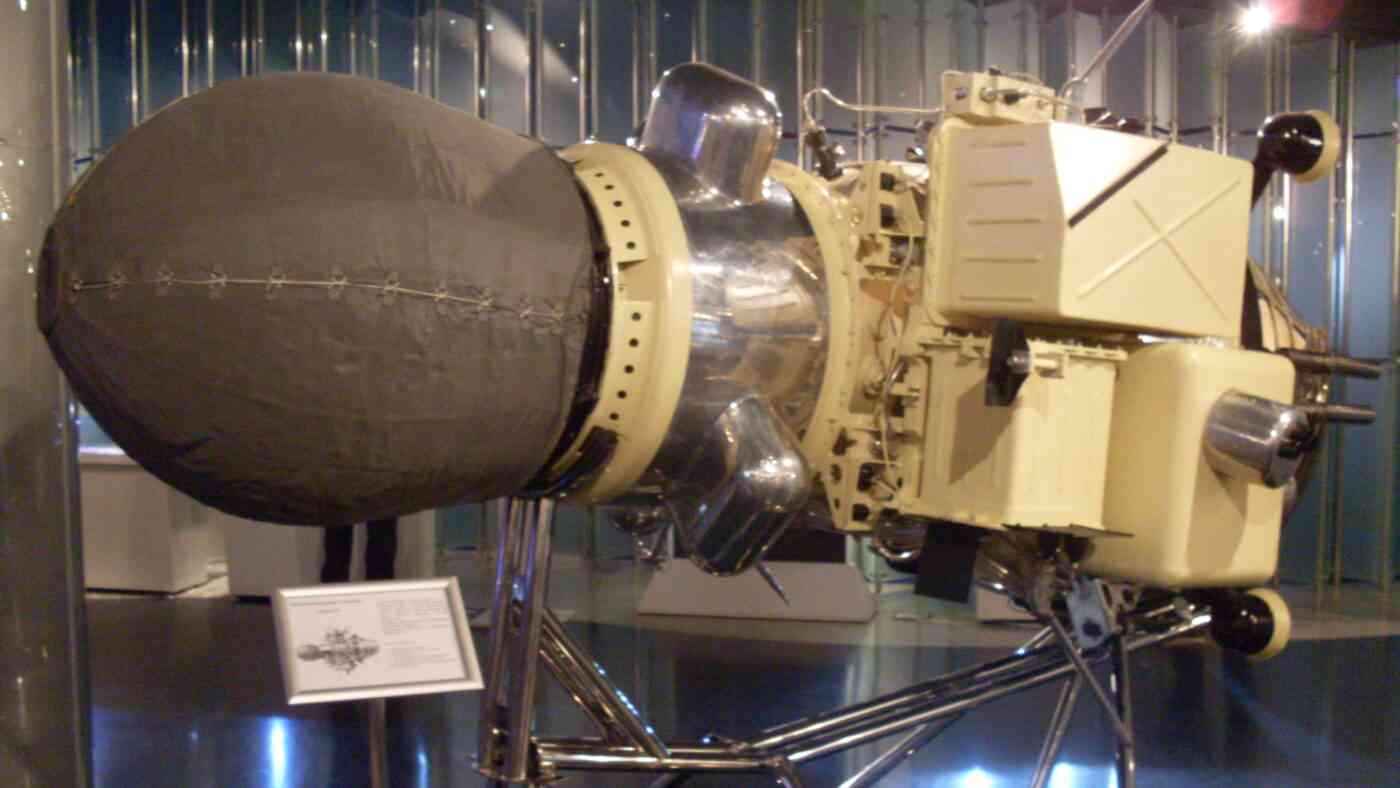Science
Lost on the Moon for 60 Years: AI Joins the Search
23 February 2026

Experts predicted an imminent economic collapse, and media roared about Moscow's bankruptcy. The plan to stop the Kremlin with sanctions seemed foolproof. Yet, three years later, the Russian machine still operates, and analysts admit they might have overestimated this tool's power. How could such a spectacular miscalculation happen? Could the West have acted differently?
Sanctions on Russia were unprecedented in scale. Western nations froze Russian central bank assets, cut Russian banks from SWIFT, imposed embargos on key technologies, and restricted oil exports. The goal was to weaken the ruble, trigger a financial crisis, and limit Russia’s war-making capabilities. “These sanctions are the toughest in history,” declared US President Joe Biden in March 2022, promising Russia would pay a “heavy price” for the invasion.
Initially, results seemed promising. The ruble lost value, Moscow stock market indices plunged, and foreign companies exited Russia en masse. However, optimism quickly gave way to disappointment. Russia, as economists point out, showed surprising adaptability. It exploited loopholes in sanctions, trading with countries like China, India, and Turkey, which did not join Western restrictions. In 2023, Russian oil exports to India grew by 140 percent, and China became a primary gas buyer. The ruble, though weakened, stabilized due to capital controls and high commodity prices. Arms production, despite restricted access to technology, continued through component smuggling via third countries.
Expectations were that sanctions would cripple the Russian economy within months. Meanwhile, as economist Jeffrey Sonnenfeld observed in 2024, “Russia found ways to circumvent sanctions by utilizing the gray area of global trade.” Russia’s GDP fell by just 2.1 percent in 2023, with a 3.2 percent growth forecast for 2024—a better outcome than many Western countries. Sanctions did not stop the war, and Putin, instead of retreating, escalated actions, recruiting new allies like North Korea. Cooperation also emerged with BRICS nations—countries often unfriendly to the West, and culturally and ideologically distinct.

This is not the first time sanctions proved less effective than announced. The United States, a key architect of sanctions on Russia, has a long history of imposing restrictions that failed to yield intended outcomes. In Cuba’s case, a trade embargo implemented in 1960 aimed to overthrow the Castro regime. Over 60 years later, communists still govern Cuba, and the embargo primarily worsened ordinary citizens’ lives. Similarly, sanctions on Iran, imposed in 1979, did not force Tehran to alter its foreign policy or abandon its nuclear program. Iran developed a gray market for trade and forged alliances with China and Russia, mirroring Russia’s current wartime strategy.
Venezuela offers another example. US sanctions on Nicolás Maduro’s regime, introduced in 2017, intended to restore democracy. Instead, Maduro consolidated power, and Venezuela’s economy, though in ruin, found support from Moscow and Beijing. As analyst Francisco Rodríguez noted in 2020, “sanctions often strengthen regimes that consolidate power by blaming the West for economic hardship.” Putin’s Russia employs the same tactic, portraying sanctions as proof of a “Western war against the Russian people.”
Recommended: EU Faces New Global Rival: A Power You Can’t Ignore
Sanctions became a convenient tool for the West—a way to show “we are doing something” without military involvement. As Bartosz Radziejewski noted on platform X in February 2022, the West’s reaction to Russia’s full-scale invasion of Ukraine was “pathetic,” with Germany, Hungary, and Italy blocking Russia’s disconnection from SWIFT and arms supplies. Sanctions were meant as a compromise between inaction and confrontation, but this compromise proved ineffective.
The West, fearing escalation, adopted a “drip-feed” strategy for aid to Ukraine. Arms deliveries—from Javelins to Leopard tanks—were staggered, often delayed by bureaucracy and political hesitations. Jens Stoltenberg, NATO Secretary General, repeatedly stressed that the Alliance “is not a party to the conflict.” Joe Biden and Olaf Scholz similarly avoided statements that could provoke Putin. Such a cautious stance, however, signaled to the Kremlin that the West was unprepared for full confrontation. “This is escalation management without a military strategy,” Leon Komornicki wrote on X in May 2025, criticizing the lack of decisiveness in equipment deliveries to Ukraine.
The argument that one could have pushed Russia back from Ukraine is risky but not baseless. In 2022, Ukraine demonstrated remarkable effectiveness in repelling the Russian offensive, especially near Kyiv and Kharkiv, when Western support was swift and coordinated. If, at that crucial moment, the West had flooded Ukraine with weapons—from HIMARS systems to F-16 fighter jets—instead of rationing aid, Ukraine might have gained sufficient advantage to liberate more territory. As General Ben Hodges, former commander of US forces in Europe, observed in 2023, “Ukraine needs not just weapons, but tempo. Delays in deliveries are missed opportunities for victory.”
Instead, the West, paralyzed by fear of “provoking Putin,” limited itself to sanctions and half-measures. Russia used this time to regroup, strengthen alliances, and adapt its economy to restrictions. “Sanctions have not affected Russia’s ability to wage war,” Jan Sadkiewicz wrote on X in May 2025. He clearly indicated that the West overestimated this tool’s effectiveness, ignoring global trade realities.
Sanctions, though potentially useful, did not prove a miracle solution in the war in Ukraine. History shows they rarely achieve strategic goals when a country like Russia has time and allies for adaptation. The West, by choosing indirect actions, avoided direct confrontation, but at the cost of prolonging the conflict. Perhaps if Ukraine had received massive armaments in 2022 and Western leaders had stopped repeating “we are not a party to the conflict,” the war’s dynamics could have been different. Many in Europe agreed that Ukraine defends not only itself but also the rest of the old continent from a predatory and imperial force. Psychoanalyst Paweł Droździak aptly articulated this: “A culture that spawned such an idea—that you can avoid fighting in self-defense and replace defensive combat with a threat of not buying or selling goods from someone—such a culture is deeply sick.”
One cannot defeat Putin’s Russia by relying solely on economic pressure and diplomatic gestures. War, as the situation in Ukraine brutally reminds us, requires force—not just moral, but also military. The question remains whether the West drew the proper lesson from this, or merely experienced a superficial awakening, only to lapse back into lethargy after a fleeting peace in the future.
Read the original article: Zachód uwierzył w potęgę sankcji. Kreml to wykorzystał


Science
22 February 2026

Zmień tryb na ciemny